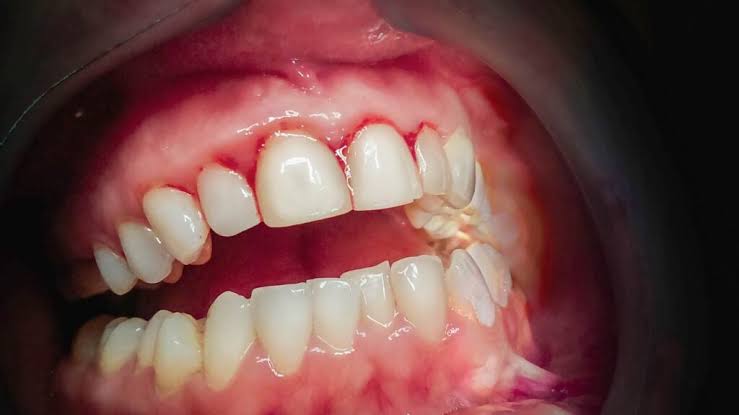Gum disease, also known as periodontal disease, is a common oral health issue that can lead to severe dental problems if not treated early. Gingivitis is the first stage of gum disease, characterized by inflammation of the gums, which can progress into more severe forms like periodontitis if left untreated. The good news is that gum disease and gingivitis are preventable with the right oral care habits and lifestyle choices. In this article, we will explore effective strategies to prevent gum disease and maintain healthy gums.
1. Maintain Proper Oral Hygiene
The foundation of preventing gum disease is consistent and effective oral hygiene. Neglecting proper care can lead to plaque buildup, which hardens into tartar and causes gum irritation. Here are the key elements of a good oral hygiene routine:
- Brush Twice a Day: Brush your teeth for at least two minutes, twice daily, using a fluoride toothpaste. Use a soft-bristled toothbrush to avoid damaging the gums and replace your toothbrush every three months.
- Floss Daily: Brushing alone cannot remove food particles and plaque from between your teeth and below the gumline. Flossing once a day helps keep these areas clean and prevents plaque buildup.
- Use an Antimicrobial Mouthwash: Rinsing with an antimicrobial mouthwash can reduce bacteria that lead to plaque formation and gum inflammation. Look for a mouthwash that contains fluoride for added protection against cavities.
2. Get Regular Dental Checkups and Cleanings
Even with excellent at-home care, it’s essential to visit your orthodontist brookfield regularly. Professional cleanings are the only way to remove tartar, which can lead to gum disease if left untreated. Your dentist will also check for early signs of gingivitis and other oral health issues.
- Routine Cleanings: Schedule a dental cleaning every six months. In cases of early gum disease, your dentist may recommend more frequent cleanings to prevent the condition from worsening.
- Gum Health Evaluation: During checkups, your dentist will assess the health of your gums. Early detection of gum inflammation (gingivitis) makes treatment simpler and more effective.
3. Follow a Balanced Diet
Your diet plays a significant role in your oral health. Consuming foods rich in essential nutrients helps strengthen your gums and teeth, while sugary and acidic foods can contribute to gum disease.
- Eat Nutrient-Rich Foods: Incorporate more fruits, vegetables, whole grains, lean proteins, and dairy products into your diet. Foods rich in calcium and vitamin C are especially important for maintaining strong teeth and healthy gums.
- Limit Sugary and Acidic Foods: Sugary foods feed harmful bacteria in the mouth, which produce acids that can irritate your gums. Similarly, acidic foods and beverages, such as soda, can erode tooth enamel and lead to gum recession.
4. Avoid Smoking and Tobacco Products
Smoking and using tobacco products are major risk factors for gum disease. Tobacco impairs the immune system, making it harder for your body to fight off a gum infection. It also reduces blood flow to the gums, preventing them from healing properly. If you smoke, quitting is one of the most important steps you can take to improve your oral health and overall well-being.
- Seek Help for Quitting: If you struggle with quitting smoking, talk to your healthcare provider about resources and strategies to help you quit. Quitting smoking can significantly improve gum health and reduce the risk of severe periodontal disease.
5. Manage Stress Levels
Stress is often an overlooked factor that can contribute to gum disease. Chronic stress weakens the immune system, making it more difficult for your body to fight off infections, including gum infections. Additionally, people who are stressed may neglect their oral hygiene habits or turn to unhealthy coping mechanisms like smoking or poor diet choices.
- Practice Stress Management Techniques: Engage in relaxation techniques such as meditation, deep breathing, or yoga. Regular physical activity and adequate sleep also help in managing stress effectively.
6. Stay Hydrated
Drinking plenty of water is essential for your overall health and particularly for your oral health. Water helps wash away food particles and bacteria from your mouth, reducing the risk of plaque buildup. Staying hydrated also promotes the production of saliva, which plays a crucial role in neutralizing acids and keeping your gums healthy.
- Carry a Water Bottle: Make it a habit to carry a water bottle with you to stay hydrated throughout the day, especially after meals. This helps rinse away any food debris and bacteria lingering in your mouth.
7. Be Mindful of Early Signs of Gum Disease
Preventing gum disease is easier when you catch it early. Gingivitis, the first stage of gum disease, is reversible if addressed promptly. Pay attention to the following warning signs:
- Red, Swollen, or Tender Gums: Healthy gums are firm and pink. If your gums appear red, swollen, or feel tender, this may be an early sign of gingivitis.
- Bleeding Gums: Gums that bleed during brushing or flossing are often a sign of gum inflammation. Don’t ignore this symptom, as it indicates that your gums need more attention.
- Persistent Bad Breath: Chronic bad breath, or a bad taste in your mouth, can be caused by the buildup of plaque and bacteria, which are linked to gum disease.
If you notice any of these symptoms, schedule an appointment with your dentist as soon as possible to address the issue before it progresses.
8. Consider Using a Water Flosser
If traditional flossing is difficult or uncomfortable for you, consider using a water flosser. Water flossers use a stream of water to remove plaque and debris from between your teeth and along the gumline. They are especially helpful for individuals with braces, dental implants, or sensitive gums.
- Choose an ADA-Accepted Device: When selecting a water flosser, look for one that has earned the American Dental Association (ADA) Seal of Acceptance to ensure its effectiveness in maintaining oral health.
Conclusion
Preventing gum disease and gingivitis requires a proactive approach to oral hygiene and lifestyle choices. By following a consistent oral care routine, eating a balanced diet, avoiding harmful habits like smoking, and paying attention to early signs of gum problems, you can protect your gums and maintain a healthy smile. Regular dental checkups and professional cleanings are also essential for keeping gum disease at bay. With these preventive measures, you can reduce the risk of gum disease and ensure the long-term health of your teeth and gums.
Read More at NewsBreak Blog!
Stay in touch to get more news & updates on News Break Blog!

